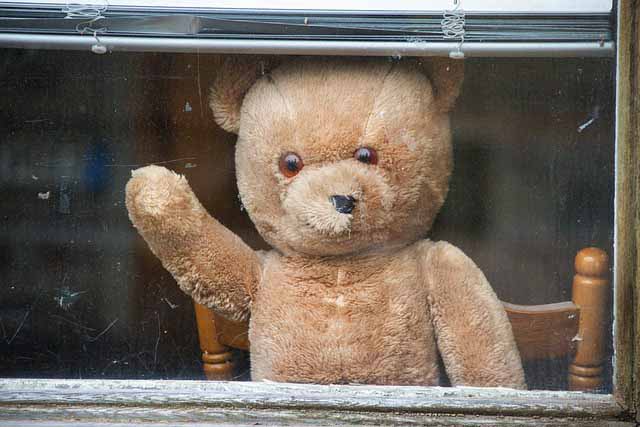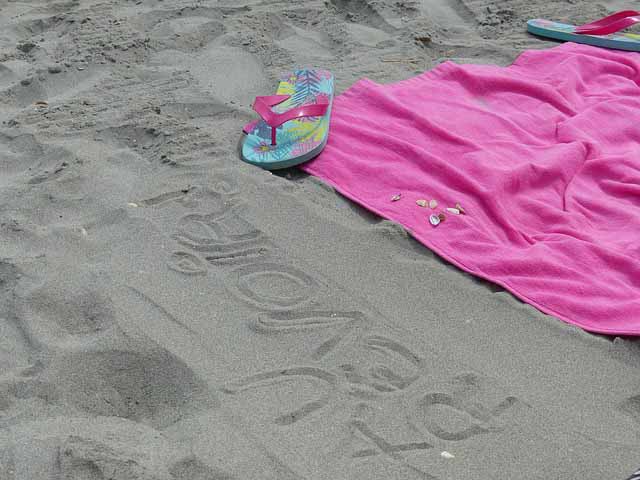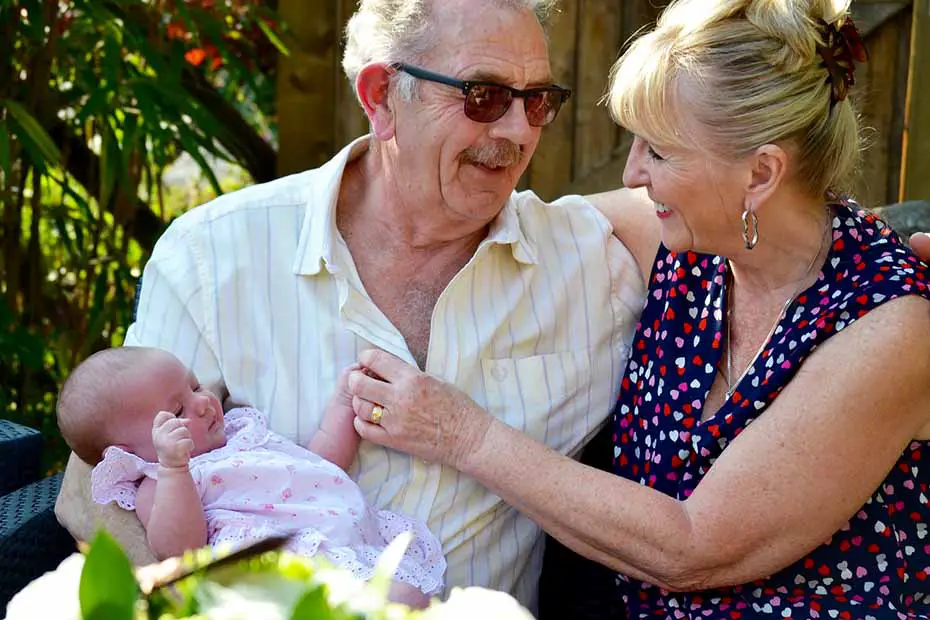Do you want to sound more natural when speaking French? Then you have to learn to express yourself like the locals. Start by simple things like saying goodbye, then slowly work your way through other sentences. The French have different ways of saying goodbye to people. These methods depend on the relationship between two people bidding each other farewell.
Different cultures have their natural way of bidding people farewell using their body language and actions. It is important to also focus on the expression and body language. Do people wave each other goodbye or do a hug? When you combine how you say goodbye with body language, you will blend in with the locals.
So, how do you say goodbye in French? Whether you are planning to move to or visit France, today we will help you say farewell in French in every way possible. We will discuss the various ways of saying goodbye before giving you some tips on expressing yourself when biding a person farewell.
Table of Contents
- Goodbye Phrases in French
- Why is it important to say goodbye in French?
- Goodbye gestures in French
- Conclusion
Goodbye Phrases in French

1. Au revoir
If you have attended any beginner’s class or taken a few french youtube lessons, “au revoir” is among the first words they teach people. That is because it is an extremely common way to say goodbye to people. A French person uses the word to bid other farewells in formal and informal situations.
“Au revoir” literally means goodbye, but it also carries some hope, unlike the bland farewell. The word comes from “au,” which means “at,” and the second part “revoir,” meaning meeting each other again or seeing each other again. From this definition, it is safe to say the literal translation of “au revior” is until we see each other again.
The phrase is informal when you add the name of the person you know or have a close relationship with. To be formal, you can add miss “mademoiselle,” Mrs “madame,” or Mr “monsieur .”
Think about this, do you really say the word goodbye to your sibling or best friend? Yes, it is too formal for very close people. You can use the expression “au revoir mon ami” or choose another expression that we will discuss later.
2. Salut!
You can say Salut when you are boarding a plane or walking past your neighbor. The word Salut means bye! The word is casual, short, and simple. Salut works both ways. We also use the word to say hi or greetings.
However, if you want to sound more like the locals, you should use the precedent “allez.” “Allez” is a form of agreement that means “alright.” Therefore, the expression in full should be, “Allez, Salut!”
You should expect the other person to respond with the same expression, “Allez, Salut!” or the plain Salut!
3. À bientôt
Are you looking to say goodbye to your colleague? You can use the words “À bientôt,” an informal phrase, but you can still use it in a formal setting as it is polite.
The phrase “À bientôt” literally means “see you later,” and you should not confuse it with “À très bientôt.” “À très bientôt” means that you will see the person in a short time, like within the same day. It could be in a couple of hours.
4. À tout à l’heure
Are you planning on meeting up with a person later in the day? You can use the words “À tout à l’heure,” which means “see you soon.” People use the word casually on the phone when planning for a date later in the evening or formally when planning a meeting with their colleagues.
The literal translation of “À tout à l’heure” means “in a moment.” However, when you want to blend in with the native speakers, then you could use “À toute” instead, which is the informal slang version.
5. À tout de suite
Suppose you are waiting for a person who is on their way to come and meet you. Then you can end your phone call with “à tout de suite.” “À tout de suite” means see you immediately or right after. This form of goodbye in French works in both formal and casual situations.
6. À demain
“À demain” is a goodbye phrase French speakers use to say goodbye to a person they plan to see the next day. “À demain” means “until tomorrow” or “see you tomorrow.” You can use it with your classmates or colleagues.
7. À la prochaine
The phrase “à la prochaine” translates as “until next time” or “see you next time.” The phrase wishes another person goodbye with the hope of seeing them again. People often combine the phrase with “au revoir.”
“Au revoir, à la prochaine” means “goodbye, until next time.”
8. À plus tard
Do you need a way to say goodbye in French in formal situations? Then use the statement “à plus tard,” which means “until later.” It will help your pronunciation if you keep in mind that the “S” in the phrase is silent.
If you want to sound more casual, you can shorten the statement to “à plus.” “À plus” means “see you later.” In this case, you have to pronounce the “s.” You should use this phrase for family members and friends only. Never use it in a formal setting.
9. Bonne journée
You can use “Bonne journée” at your daily coffee shop. The phrase “Bonne journée” means “Have a good day.” You can use this goodbye in both, formal and informal situations.
10. Bonne soirée
Are you done with a meeting with your client? Then you can tell them goodbye in French using “Bonne soirée.” “Bonne soirée” literally means “Have a good evening.” You also use the statement casually or formally.
11. Adieu
The statement “Adieu” is more than a goodbye. The word means “farewell” without the hope to see the other person, so it’s goodbye forever. So, if you are planning to break up with your French partner, you can tell them “Adieu” because it is a sad goodbye.
12. Say à…
After ending a meeting, you can tell your colleagues that you can meet again on Monday by saying “à lundi.” To say “à lundi” means “see you on Monday.” You can choose the precedent, say “à…”, and add any other day of the week.
13. On se voit…, alors
Let’s say you have agreed with your partner on the activities you two will do as a date; you can use the statement “On se voit…, alors” as a confirmation. The statement “On se voit…, alors” means “we’ll see each other…, then”. For example, you can say, “on se voit LA SEMAINE PROCHAINE, alors” which means “see you next week, then.”
14. Bonne nuit
“Bonne nuit” tells a person to have a good night or spend a good evening. You can use this statement in both casual and formal situations.
15. Prend soin de toi
One of the warmer ways to say goodbye to your friends and family is to ask them to take care of themselves. We may use “prend soin de toi,” to tell people to take care for themselves. Another phrase is “fais attention à toi,” which also means you should take good care of yourself.
Why is it important to say goodbye in French?
Has anyone ever got up and left you without saying goodbye? People that stand up and leave without a word appear to be rude to the other person. Therefore, if you don’t say goodbye to French people, they will find you rude. You should also ensure to say it the right way. Saying “Adieu” tells French people only you are not willing to see them again any time soon. However, saying “Au revoir, à la prochaine” means you can’t wait to see them the next time you meet.
Using the most suitable phrase for biding farewell in French will help you look warm, polite, and respectful to other people. Therefore, you should also adopt the behavior of a native speaker to match their goodbye.
Goodbye gestures in French

Now that you know how to say goodbye in French, you should also learn to show the accompanying gestures.
The French like to kiss on the cheeks when saying goodbye. You can do this with your family, friends, or acquaintances. So, prepare to get kissed on both or one side of the cheek which is common. In many parts of France, they kiss people on the cheeks. They start with the right cheek then the second one. In some parts, men do not participate in the kiss. The women are the ones who do kiss each other.
There is also the air kiss. The lips of the two people don’t touch when blowing the kiss. The lips don’t touch the skin when blowing the kiss, but the cheeks can touch.
You can also wave to people you are not close to or shake hands. Shaking hands is also different because the handshake is a single downward motion. The hands need to be firm and brief. Men mostly do this formal handshake with coworkers and clients. Smiling at them is also a friendly way to seal the goodbye.
Conclusion

You can try practicing how to say goodbye in French with other people or look for tutorial videos. It can be difficult at first, but you will get it right with a few redos. Also, which goodbye phrases did you like? Ensure that you get the pronunciation right to make you sound like one of the locals.



